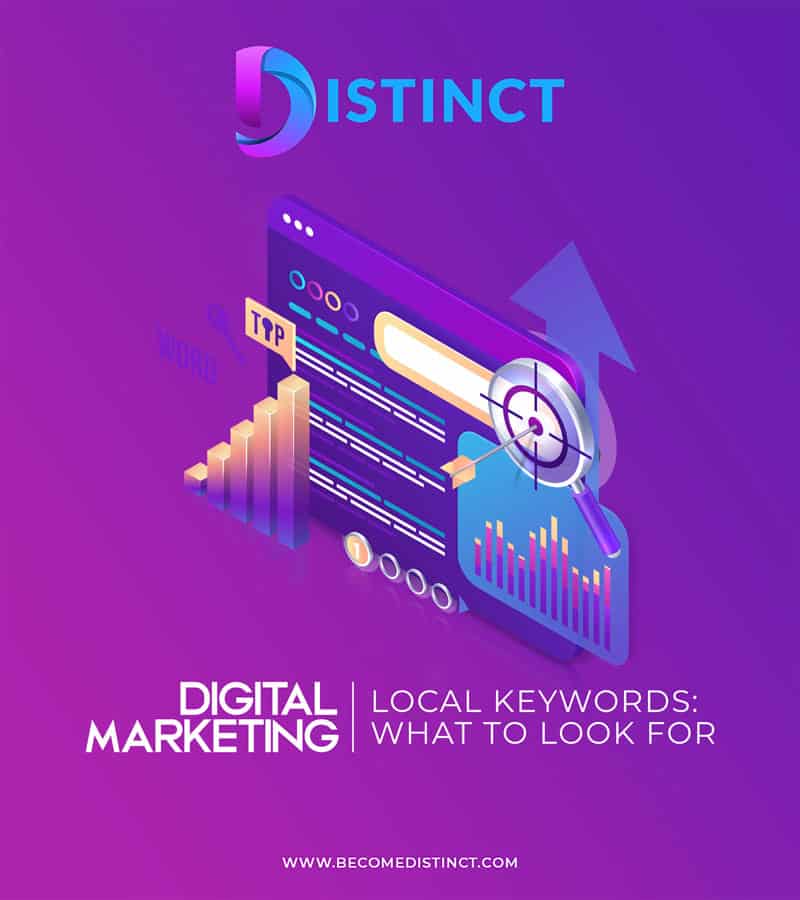Almost half of all Google searches are local in intent. That means you need to get your small business to show up in the search results for the areas your business serves.
One of the best places to start is by identifying local keywords and using them throughout your website. Finding the right search terms to use doesn't have to be difficult but it will require some time and a little bit of savvy research.
Here is a look at the characteristics that make the best local keywords.
Locally-Focused
Every local keyword you use should, naturally, incorporate terms that refer to the geographic areas you serve. For example, if you serve the Greencastle area, you will need to use search terms that include “Greencastle.”
Don't just focus on the area where your business is located, however. You should also choose keywords that focus on other areas your business serves.
For example, if your business serves towns close to Greencastle, such as Terra Haute, Plainfield, or Mooresville, you will need to include keywords that mention these locations.
By including very specific areas in your keywords, you make it easier for Google to recognize your company's location and make your business visible to individuals searching within the areas your business serves.
Finally, when choosing locally-focused keywords, you will need to consider where your target audiences live and work. You may serve Greencastle, but your target audience may reside in Terra Haute. By including their location in your keywords, you can communicate the fact that you are able and willing to serve their needs, right where they are.
Industry-Related
It may be tempting to choose keywords that you know perform well. However, the best local SEO for your business will focus not only on local terms but also on the industry you serve.
For example, say you are a florist in Greencastle. You will want to use terms such as “florist,” “floral arrangements,” or “flowers,” in your keywords. By using terms related to your industry, you are more likely to attract visitors who are highly qualified and willing to convert.
In addition, by using terms that accurately represent your business, you avoid high bounce rates when visitors quickly discover that your business does not offer what they need and leave your site (A factor that can make Google less likely to rank you favorably in the search results).
Services-Explicit
Industry-related terms can be a bit generic and are often used by many businesses, making it harder for your small business to rank well using those terms.
As a result, you may also want to include keywords that describe your services and unique characteristics when building your local SEO strategy.
For example, your florist business may specialize in wedding bouquets or same-day delivery. Consider including those terms in the keywords you select.
You may want, for instance, to use “Same-day floral arrangements Greencastle,” or “Wedding bouquets, Terra Haute” as some of your local SEO keywords.
By highlighting the services and distinctive features of your business, you have the chance to reach consumers who are conducting specific local searches.
You are also likely to have fewer businesses to compete against, which can make it easier to rank favorably in the local search results for your target audiences.
Sharpen your local keywords with service-explicit terms and see if you can build brand awareness as well as website traffic by standing out to potential consumers.
Modifier-Rich
You may also want to consider modifying your keywords with specific words and phrases that help describe your business in more detail.
For example, you may want to use modifiers that describe the quality your consumers can expect from interacting with your business. Use terms such as “best,” “top,” “leading,” or “only” (e.g. “Leading florist, Greencastle, IN”).
Other types of qualifiers you may want to use include the following:
- Special offerings (e.g. “Half-price roses” or “hospital delivery”)
- Occasions (e.g. “Halloween decorations” or “Christmas arrangements”)
- Types of products you offer (e.g. “Roses,” “Baby's breath,” or “Lilies”)
- Price (e.g. “Affordable,” “Sale,” “Low rate,” or “Special deals”).
When creating keywords for your local SEO campaign, you need to look for features that will accurately represent your business and that are likely to be used by your target audiences.
